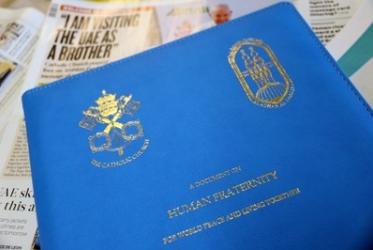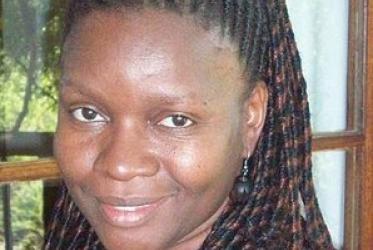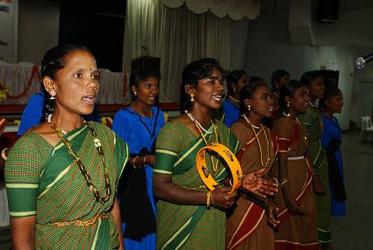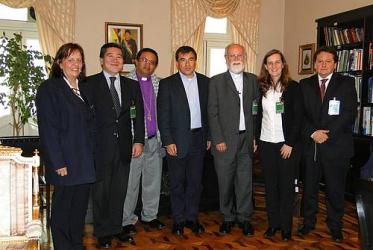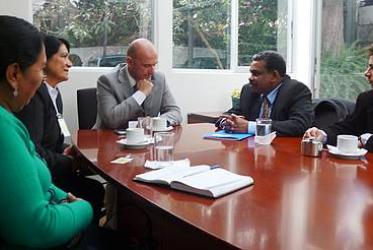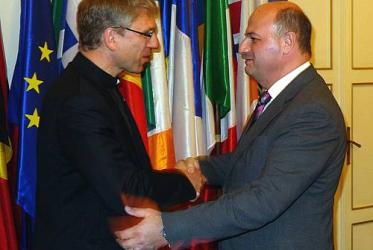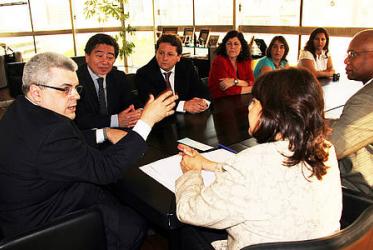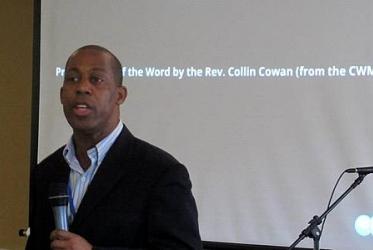Displaying 521 - 540 of 627
Churches engage in development dialogue on Africa
06 March 2013
Churches advocate for the rights of stateless people
01 March 2013
Living with God in the context of HIV and AIDS
27 February 2013
Working for climate justice is an ethical and spiritual imperative
27 February 2013
EWN invites biblical reflections on water
13 February 2013
Transforming lives affected by HIV and AIDS
13 February 2013
Justice is the key to peace in Colombia
31 January 2013
Churches celebrate Week of Prayer for Christian Unity
23 January 2013
Statement on global economy delivered to Bolivia
15 January 2013
Protection of uprooted people is integral to religions
14 December 2012
Brazilian youth advocate for peace in Palestine at WSF
12 December 2012
Guatemala struggles for democratic reforms, transitional justice
12 December 2012
Fighting HIV with courage and dignity
05 December 2012
WCC delegation in Doha advocates for climate justice
05 December 2012
Situation in Greece more than an economic crisis
20 November 2012
WCC consultation on small arms proliferation in Africa
15 November 2012



